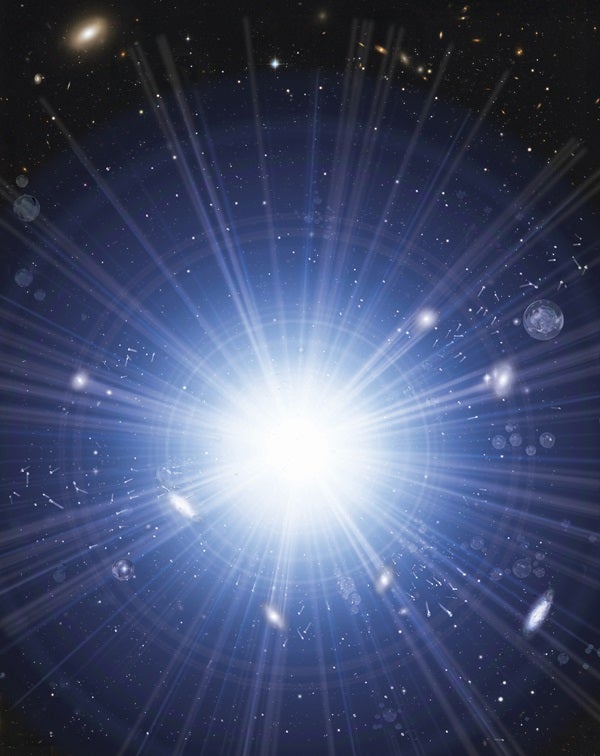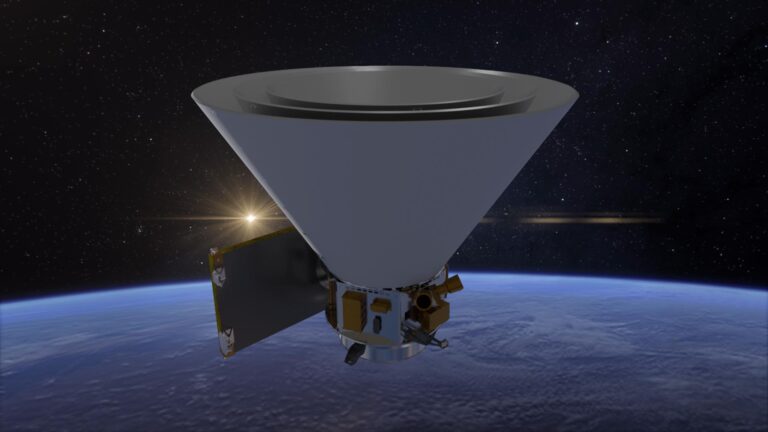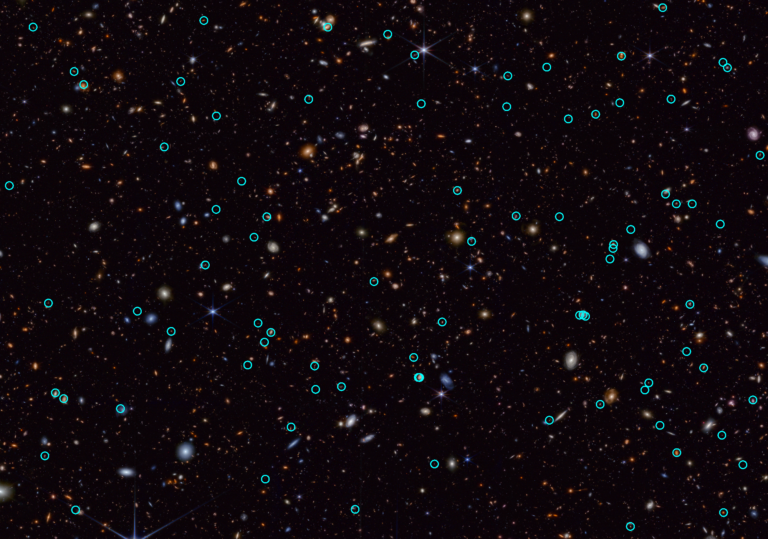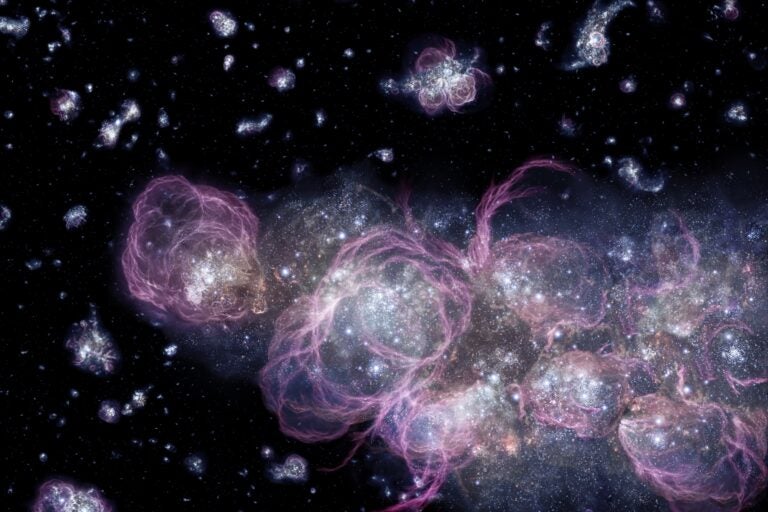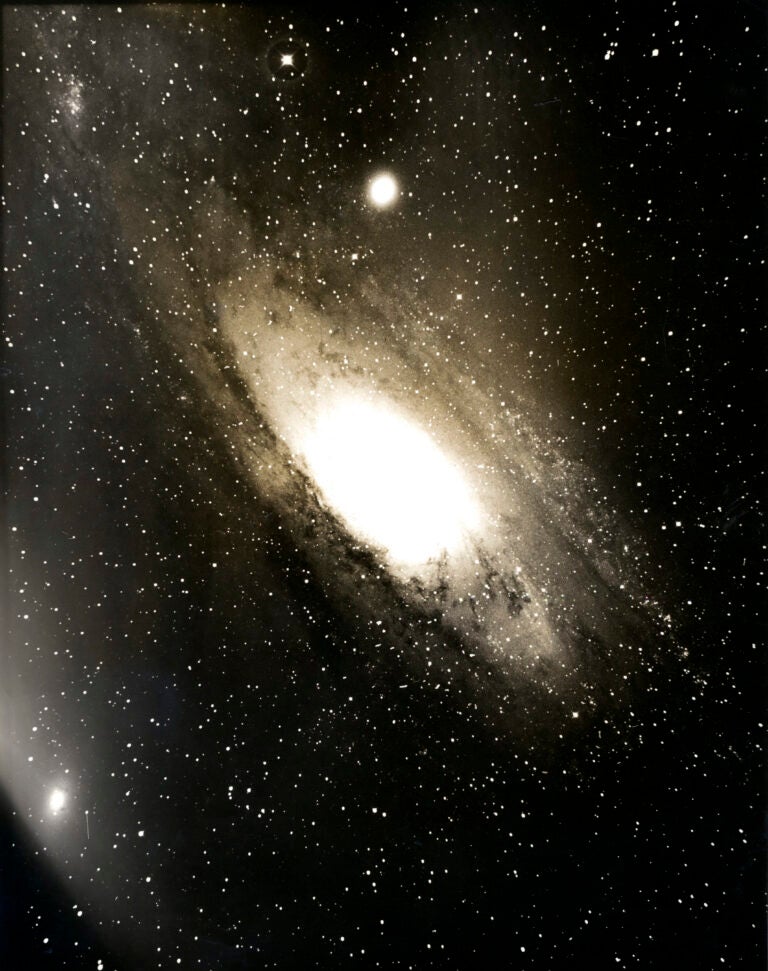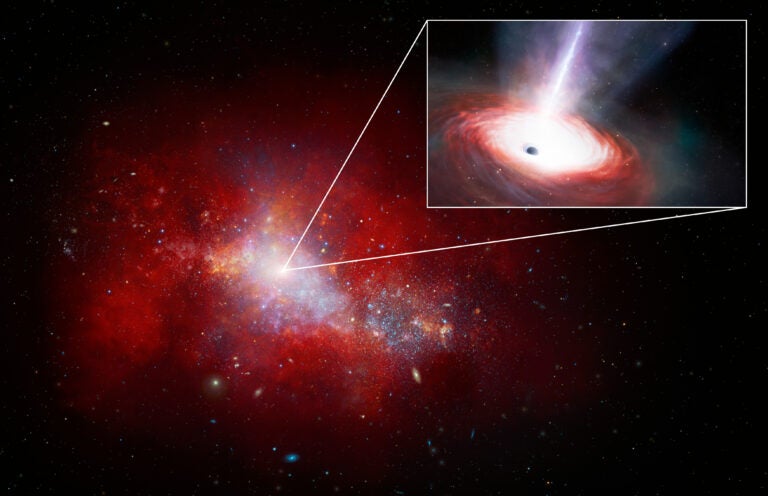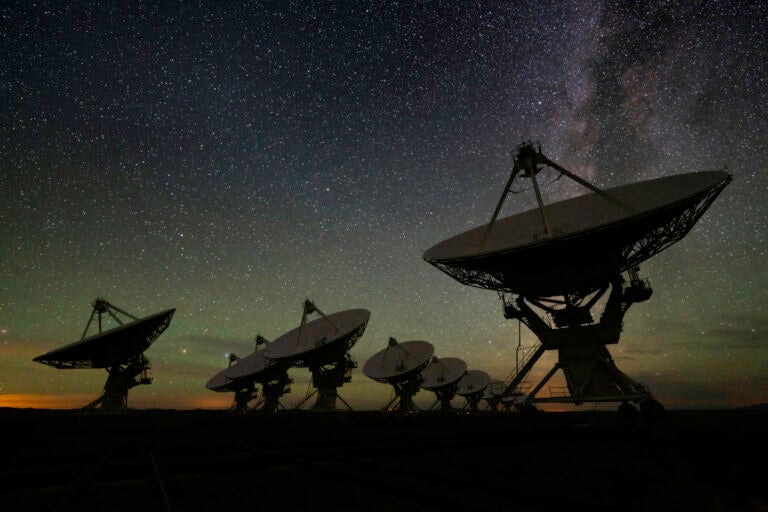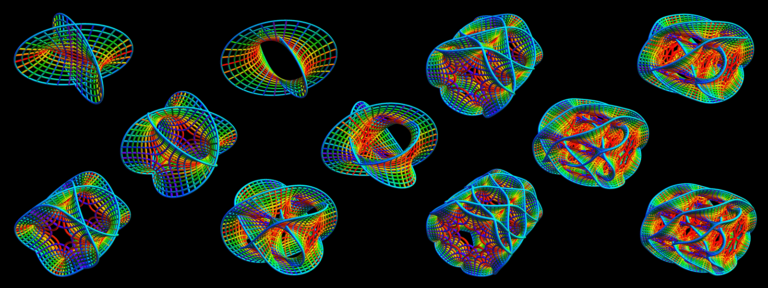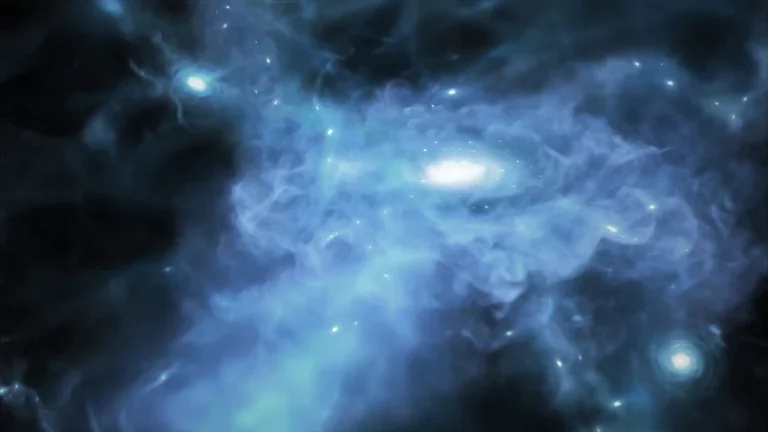It seems to be a common misconception that the Big Bang arose from a single quantum particle. This idea probably stems from cosmologists talking about the Big Bang as a singularity — a singular point in space and time, from which the entire universe emerged. But a singularity is not the same thing as a single particle, or other kind of object. Cosmologists do not think there could exist a particle with anything close to enough mass or energy to have generated everything in our universe.
In the very first moments of our universe’s history, all of space was filled with an ultra-hot and ultra-dense sea of particles. A trillionth of a second after the Big Bang, for example, the temperature was a billion times hotter than the core of the Sun, and the energy density was the equivalent of more than 1036 kilograms in every cubic meter of space. To obtain a density this high, you would have to compress the Sun into a volume the size of a marble.
As a historical aside, in what was perhaps the first scientific theory for the origin of our universe, the Belgian astronomer Georges Lemaître hypothesized in 1931 that the universe did emerge from the decay of a single supermassive particle, which he called the Primeval Atom. Lemaître’s hypothesis, however, has little in common with the modern conception of the Big Bang.
Senior Scientist, Fermi National Accelerator Laboratory, and Associate Professor, University of Chicago

